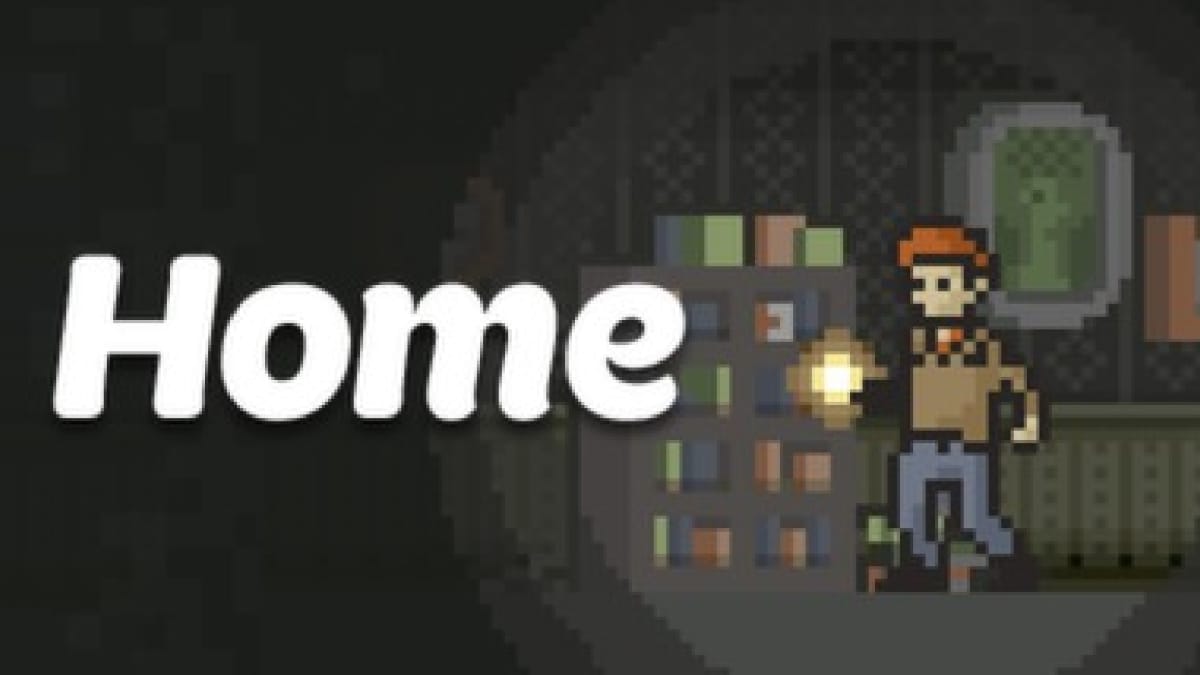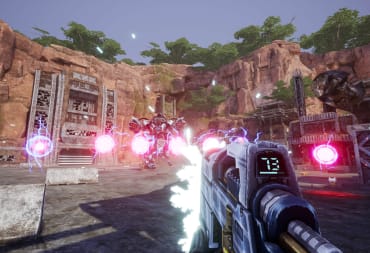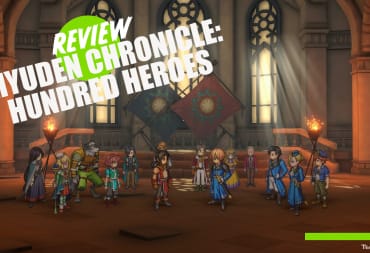Having been on a bit of an indie kick lately what with playing Gone Home, State of Decay, and LocoRoco on PSP, I decided that this time I would review Home. Having missed all the fuss when it was popular, and discovering this little gem in our backlog, it was time to review it. Developed by Benjamin Rivers, Home is a rather minimalist title, choosing mind over matter in the form of its presentation. Part horror, part thriller, Home is full of twists and turns that ultimately leave you the player either enlightened or confused based on your choices.
Home - Gameplay
The gameplay for Home is like the overall game, very minimalist. You guide your character using the left mouse button while inspecting various items on the ground. These can be in the form of old newspapers, photos, weapons, videotapes, keycards, and various others. While this seems very basic, Home is full of interesting little puzzles here and there. Much like the classic Secret of Monkey Island, you will need to locate certain items in order to progress further in the game, shuffling through sewers, power plants, and forests while grasping your torch on a quest to figure out what happened.
Along the way, there are small decisions that ultimately shape the way the game progresses. For example, will you release that poor mouse from the mousetrap? Will you pick up that handgun by the door, grab that rope or go rummaging through the nearby desk's papers? These decisions will affect the outcome of the game as well as the information available to you as you progress. The game only takes about an hour and a half but at the same time, it's minimalist leanings hide a lot of depth.
Home - Story
The story of Home is its major strength. Awakened by an oncoming storm, you find yourself in the store room of a strange house, not belonging to you. Searching around the house you unlock a door leading to a basement wherein lies a trapdoor leading to a godawful smell. What's down there? You decide. Home is at it's core a horror game and whether it scares you or not the themes discussed in it are quite dark. The game is told in an unusual manner, as you move around Home's world your protagonist will talk to himself at times, providing further clarity to your situation or divulging the information you need to make a decision. The entire game is very open ended. There is no limit to where you can explore and no limit to what you can miss. I myself missed what I think was important information in the forest because I couldn't go back.
You will journey through the world of Home searching every nook and cranny you can find for any tidbit of information and context that will further uncover the story. You are always given a deep insight into the main character's mind, thought and feelings. You will know if he is unnerved by something you have found or if he can not go on. If he is hurt he will monologue about it. At the end of the game, based on your decision, you will be asked to piece together what you think the story's narrative is. The brilliant thing about Home is there can be dozens of interpretations based on your decisions through out the game and ultimately these twists tie in. Your actions in the moment determine your story. The multiple endings of home can be interpreted in several different ways, and no two playthroughs are the same story wise.
Home - Graphics
Graphically Home is unusual. Once again channeling the minimalist look the work is created through pixels, with only a small area of the screen visible in dark lit areas. The lighting plays a very important role in Home's atmosphere and while the graphics are nothing impressive they work to great effect in conjunction with the sound design to create a rather unnerving atmosphere. Never knowing what's around the corner is interesting, with the little things helping to make you uncomfortable. Occasionally you'll spy a pair of eyes watching you from the bushes, or you'll notice a black silhouette following you. It's the little things you'll notice out of the corner of your eye and the inability to see far in front of you that adds to this. The graphics are nothing special, but what little they have, they use to great effect.
Home - Sound
Sound design. My god, Home's sound design is fantastic. While the majority of the time the music and sound is ambient, there are times when it really ramps up. This is used mainly to assist with a few cheap jump scares occasionally but the times when it's in the background shows where it shines. Occasionally you'll hear a door or a floorboard creak. A cat will run past you, or lightning will crackle. The ensemble is very crisp and clean, allowing you to hear your hero's heartbeat at times (or maybe it's your own) and help create an overall oppressive atmosphere.
The sound and lack of music at times work to great effect in conjunction with the pixelated visuals to a quality standard that very games like this manage to achieve. Overall Home isn't actually all that scary, but it is unnerving. The different aspects of the game, the story, the sound, and the visuals culminate in an experience that far outweighs Home's short play time. It is incredibly rewarding, charging the player to create their own narrative rather than bashing them over the head with it. Home screams minimalism and subtlety to a point not seen since the likes of Braid and Machinarium within the indie scene. While Home isn't for everyone, it is worth at least one playthrough.
The Verdict
The story events are executed quite well, and regardless of what ending you get, you will be filled with questions that only you can fill in. In terms of the horror aspects of Home, I must confess I didn't use a headset, as I played it under a skylight in mid-daylight. Even under those conditions, it still manages to give me a jump once or twice. Due to the replayability, I'm sure it will get another few playthroughs, but I recommend Home to anyone who likes a good, intriguing murder mystery. Home doesn't rewrite the book on horror, but what little it does do, it does well.
TechRaptor reviewed Home on PC via Steam. This review was originally published on 11-16-2014. While care has been taken to update the piece to reflect our modern style guidelines, some of the information may be out of date. We've left pieces like this as they were to reflect the original authors' opinions, and for historical context.
Review Summary
Have a tip, or want to point out something we missed? Leave a Comment or e-mail us at tips@techraptor.net











